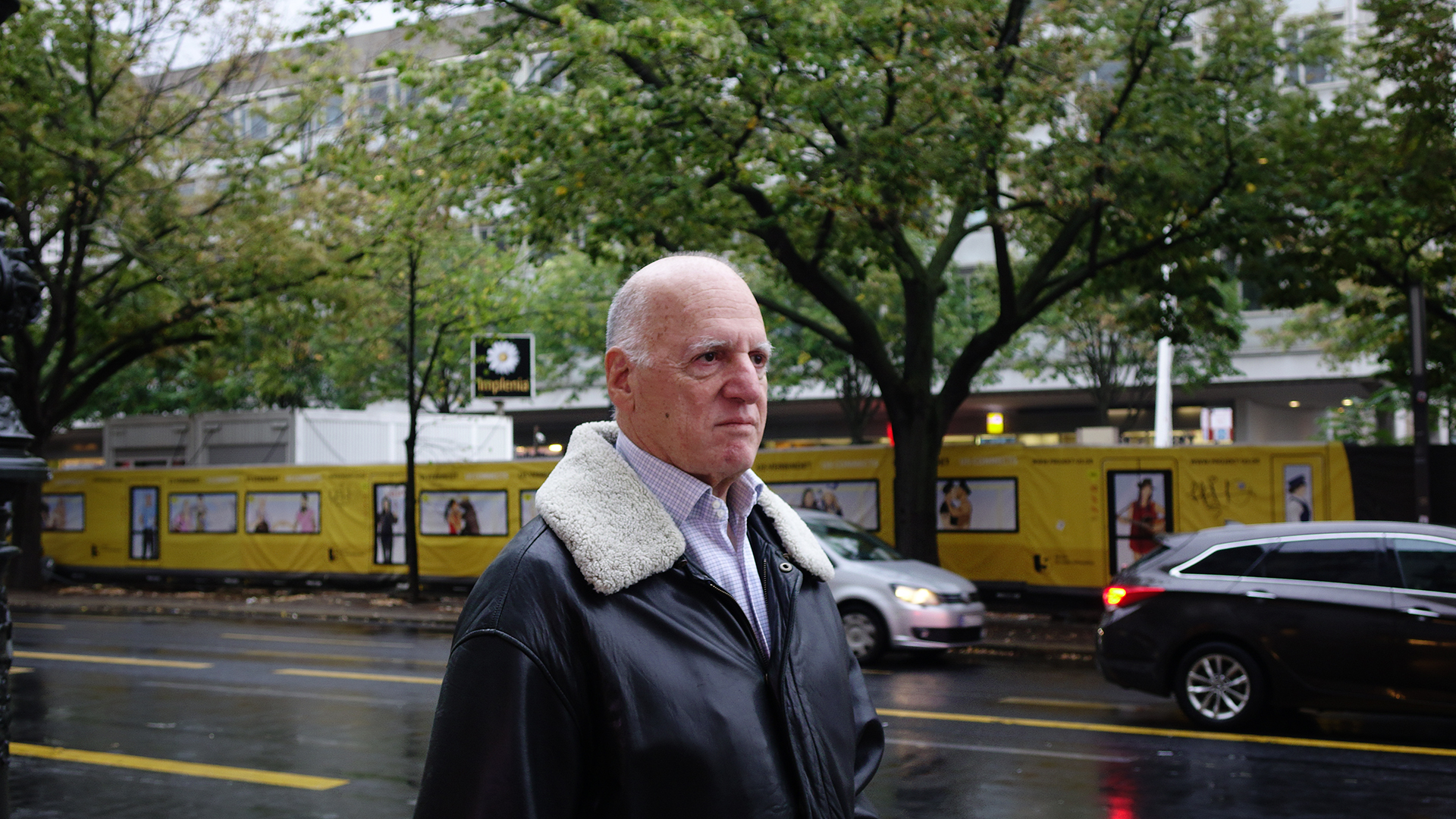David Ranan has spent years researching attitudes of Muslims in Germany. In this interview, he elaborates on differing roots of anti-Semitism in Europe and the Middle East and proposes a two-way educational strategy to face prejudices and hatred.
zenith: Where do the roots of anti-Semitism in Europe lie?
David Ranan: The hatred of Jews has a long history in the Christian world, which goes back to the idea, that Jews are responsible for the death of Jesus Christ, who Christians believe to be the son of God, and therefore, Jews have killed God. For a person of faith, a killer of God cannot be forgiven. So, for hundreds of years, in their Sunday sermons, preachers have taught in churches, that Jews are terrible people who killed God. And, of course, some stories were made up to stir up more hatred, stories like “those people who killed God, are after your money. They try to kill your children, they also try to control the world” and this prejudice remained long after the belief itself had passed away.
So how does this heritage of anti-Semitism differ from so-called Muslim anti-Semitism?
Islamic rules define the rights of “the people of the book” or “Ahl al-Dhimmah”, meaning Jews and Christians, who are to be protected and treated well, but who are not permitted to carry arms or join the army. They also must pay a special tax.
In which way does the Quran mention the Jews?
The Quran makes two references to Jews. “Bani Israel” which means the children of Israel, and “Yahood” which means Jews. Now, most of the verses – about Jews – use the first reference, and they mostly retell stories from the Old Testament. Unfortunately, many Muslims don’t know that. The second reference – Yahood – is used to describe the three tribes of Jews who lived in Medina and had a treaty with Muhammad. But then the treaty fell apart, which ended in some rather bloody battles, so they are described as disloyal and untrustworthy.
In an article you wrote for zenith magazine, you asked if Muslims are inherently hostile towards Jews. Are they?
No, I don’t think so. At least, not more than in comparison to any other inter-tribal or inter-group mistrust or dislike.
Why is that?
In today’s world, emotions of Muslims towards Jews – and definitely of those hailing from Arab countries –nearly always reflect their feelings about the Israeli-Palestinian conflict. 120 years ago, the Jewish National Movement was established to find a solution posed by growing anti-Semitism in Europe. Jews in the Arab and Muslim countries were a minority, and as such second-class citizens. But they were not persecuted in the same way European Jews had been for hundreds of years.
Though the status of Jews improved during the late 18th and early 19th century.
The hope that Enlightenment in Europe would bring an end to the unfounded bias against Judaism ended in disappointment. So, Zionism that is for Jews to have their own state, was the solution. And that state was to be located where they originally came from, the place that they always longed for: Jerusalem and the Land of Israel.
“In the Arab world, the terms “Zionist”, “Israeli” and “Jew” often get mixed up and many people don’t know the difference between them”
How did this concept translate into reality?
Jews started coming in, buying land from wealthy owners, many of whom lived in Beirut or other faraway places, who did not care about the farmers on their land. The farmers soon found themselves out of work, with Jews owning what was home and livelihood for them. This was already happening before 1948, before the State of Israel was established, and that is how an enmity between Arabs and Jews developed. Europeans think of anti-Jewish feelings in the context of the historic Christian Jew hatred that culminated with the Holocaust. When Arabs speak of Jews as an enemy, it is, in most cases, because of Palestine.
Do you think that authoritarian rule in the Arab world played a role in that development?
No doubt, dictators manipulated the population, stoking fears and promoting hatred to achieve political goals. But not only dictators use these tactics. Look at Trump in the US, and Netanyahu in Israel. They are doing the same. Of course, the matter is more complex. In the Arab world, the terms “Zionist”, “Israeli” and “Jew” often get mixed up and many people don’t know the difference between them. So many of them say “Jews” and think “Israelis”. The Jewish community in Europe and America often contributes to this confusion. When, for instance, Jewish representatives explain Israeli actions as if they were representatives of the State of Israel.
What role do Israel’s policies play in increasing hate towards Jews in the Middle East?
I believe that it was morally justified and right to establish a state for the Jews, as the United Nations had decided in 1947. However, the decision also allowed for a state for the Arabs. Unfortunately, the Arabs did not accept the UN partition plan. For many Arabs, the mere existence of Israel creates hatred towards Jews, and that is a problem. Things got worse with the 1967 conquest of the highly-populated West Bank and even more so since the ascendance of the political right in Israel and their policy of aggressively settling Arab land with Israeli Jews.
“Jewish community in Germany should actively reach out to the Muslim communities”
There are many Jews and Israelis who don’t support Israel’s policies and don’t approve of the Israeli government. Should they get more active in highlighting problems with Israel’s policies, especially in Europe?
I think there are some Jewish organizations that already do that in Europe. But I agree, they are not doing enough. The situation in Germany, for example, is unique, because of the legacy of National Socialism and the Holocaust. That’s why many Germans are very sensitive to criticism of Israel.
So what can be done to deal with anti-Semitism in Germany coming from Muslims who came as migrants or refugees to Germany?
I think the Jewish community in Germany should actively reach out to the Muslim communities. I would even go so far as to say that they should be the first to welcome them in Europe, rather than projecting fears. That’s my opinion, but unfortunately, not many share that view.
You have written a book about Muslims and anti-Semitism in Germany. What did your findings show?
I conducted many interviews with Muslims in Europe and found three key common threads among the majority of my interviewees. Most of them believe in the stereotypical, negative image of the Jews; most of them base negative emotions towards Jews on the Israeli-Palestinian conflict; and most of them don’t know much about the history of that conflict. Along with what I mentioned earlier about the confusing use of “Zionist”, “Israeli” and “Jewish”.
“Understanding does not equal agreeing, but it means showing respect”
What do you recommend in response to your findings?
What we need is a good educational programme, not only for Muslims, but for every school in Germany, that teaches the history of the conflict without taking sides, but conveying all different perspectives and views of the conflict. Eventually, every student can decide his view on and feelings toward that topic on his or her own.
So better education in schools will fix the issue?
The second thing we need to embrace is empathy. We need to learn to accept and to respect the feelings, worries, even the hatred of the other. Jews must understand why many Muslims identify with the Palestinians and Muslims must understand why many Jews identify with the Israelis. Understanding does not equal agreeing, but it means showing respect.
That still leaves room for negative feelings towards Jews.
Of course, what everyone must understand is that even if you hate, you are not permitted to be violent. We have to emphasise in education that violence of any kind, physical but also verbal, is not permissible. First, teach to understand all the facets of the conflict, second, preach empathy with the other–that is the David Ranan prescription to tackle anti-Semitism amongst Muslims.
David Ranan is an Israeli, German and British citizen. He was born in Tel Aviv in 1946. Has a PhD in Political and Cultural Studies, and is the author of a number of books, the latest is “Muslimischer Antisemitismus: Eine Gefahr für den gesellschaftlichen Frieden in Deutschland?” (“Muslim anti-Semitism: A threat to social peace in Germany?”) in which he interviewed many Muslims in Germany and England to discuss antisemitism.




